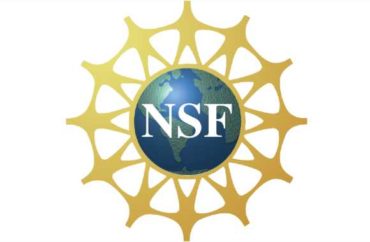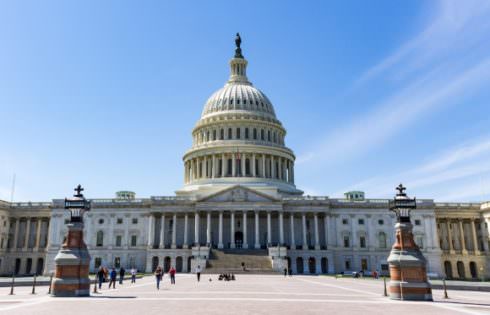
ANALYSIS: While most cuts focused on DEI-related grants, some eliminated projects appeared to represent traditional science
The Department of Government Efficiency, or DOGE, has recently taken Elon Musk’s mostly proverbial chainsaw to more than 1,600 grants issued by the National Science Foundation.
The cuts are documented by Grant Watch, a project described as tracking “the termination of grants of scientific research agencies under the Trump administration in 2025.”
Many, including the bulk of 701 cuts announced on April 25, pertain to projects concerning diversity, equity, and inclusion, or DEI. A considerable number of these defunded projects focused on efforts to attract members of reportedly underrepresented demographics to specific STEM fields, or better engage, retain, or understand the experiences and scientific contributions of members of those communities.
Examples include projects that sought to increase diversity in biological anthropology, promote astrophysics in American Indian and Alaskan Native communities, understand how students from the rural Arctic engage with Polar science, examine the experiences of undergraduate LGBTQ students in STEM, study “the effects of gender composition on disruptive science,” and further elucidate the roles of a growth mindset and other factors in the “development of an identity as an economist” among women and racial minorities.
Notably, some projects took rather unique approaches to these types of goals. One $1.5 million project that was nominally about physics outreach intended to build on pilot work that is said to have demonstrated that “authentic inquiries into science through embodied learning approaches can provide rich opportunities for sense-making through kinesthetic experience, embodied imagining, and the representation of physics concepts for Black and Latinx teens when learning approaches focused on dance and dance-making.”
Another $1.5 million project, which was previously covered by The Fix and highlighted in a 2024 Senate report concerning questionable NSF-funded DEI projects, attempted to leverage “Black feminist epistemologies and Black women[’]s ways of knowing, as critical frameworks” and utilize “the concept of sister circles to create counter spaces to build community and resist structural oppression” in computer science programs.
According to the NSF website, the cuts targeted grants that fall out of line with the agency’s recently updated priorities. Specifically, these include but are not limited to awards for projects focused on “diversity, equity, and inclusion (DEI), environmental justice, and misinformation/disinformation.”
During an initial round of cuts there were numerous grants terminated that funded projects examining the spread and harms of alleged misinformation, especially around COVID-19 and vaccines, as well as ways to identify and combat such information.
Researchers at Northern Kentucky University, for instance, saw a $50,000 grant terminated for a project that entailed the development of a prototype for a web extension that could be “directly embedded into web browsers to seamlessly report trustworthiness of any OHI [online healthcare information] content,” serve as a “trust badge model for easy certification of web content,” and help with the classification of online content.
A $5 million grant for a University of Wisconsin-Madison project previously reported on by The Fix and named in a report from the House Judiciary Committee and the Select Subcommittee on the Weaponization of the Federal Government regarding the “funding of AI-powered censorship and propaganda tools” was also among those cut.
However, grants for several projects that seem largely to steer clear of contentious social issues and political ideology also have been hit, raising questions of whether all of these terminations were intentional or whether some were due to the inclusion in grant abstracts of certain terms that often have different meanings in a scientific context than they would in political discourse or the inclusion of vague statements about promoting diversity and inclusion when alluding to broader project impacts.
For example projects examining the extinction of pollinators on Hawaiian Islands, male-female diversity in Panamanian hummingbirds, the diversity of aquatic insects, and underemployment in neurodiverse individuals are among the projects recently defunded by the NSF.
The College Fix emailed researchers tied to several such projects. One researcher replied they were avoiding media contact for the moment but indicated they were still trying to determine what the impact of the termination meant for them and their work.
Moreover, 189 grants awarded to researchers at Harvard University were cut on May 15, many of which had nothing to do with DEI or other controversial topics. Unlike cuts made in previous rounds, these are generally considered to be downstream of Harvard’s ongoing conflict with the Trump administration over the school’s DEI policies and allegations of on-campus antisemitism. Harvard President Alan Garber recently announced he would take a 25 percent pay cut to help offset these and other fiscal casualties of the conflict.
Based on information provided on the NSF website concerning specific grants across the organization’s past several rounds of cuts, many of the terminated grants appear to have already been awarded in full, calling into question whether some of these terminations will actually save the federal government and taxpayers any money. These include the $1.5 million grant for “dance-making” in physics and the $5 million grant cited by the Select Subcommittee on the Weaponization of the Federal Government.
The College Fix reached out to the NSF for clarification on these matters. A media officer with the NSF replied via email that the NSF declined to comment and referred The Fix to the organization’s FAQs page.
MORE: Trump admin freezes $2.2 billion to Harvard after school resists demands
IMAGE CAPTION & CREDIT: The logo of the National Science Foundation / NSF
Like The College Fix on Facebook / Follow us on Twitter






Please join the conversation about our stories on Facebook, Twitter, Instagram, Reddit, MeWe, Rumble, Gab, Minds and Gettr.